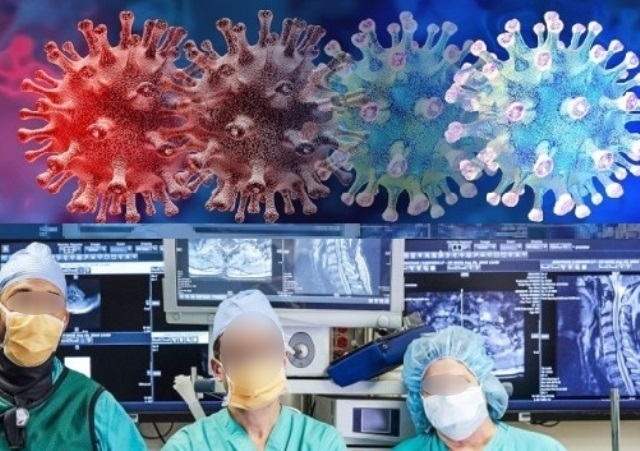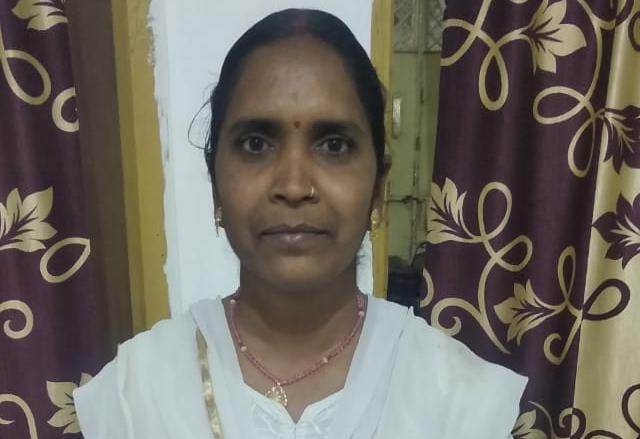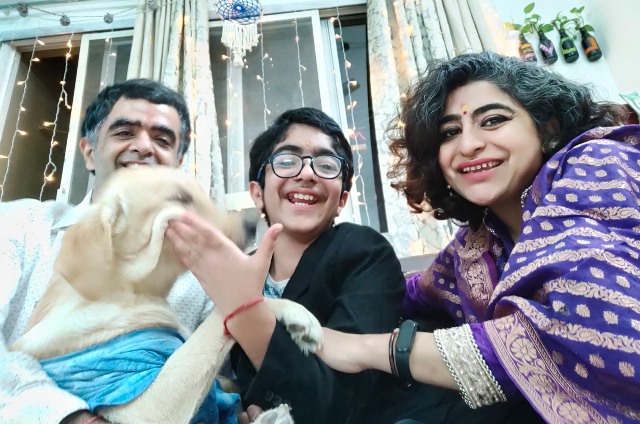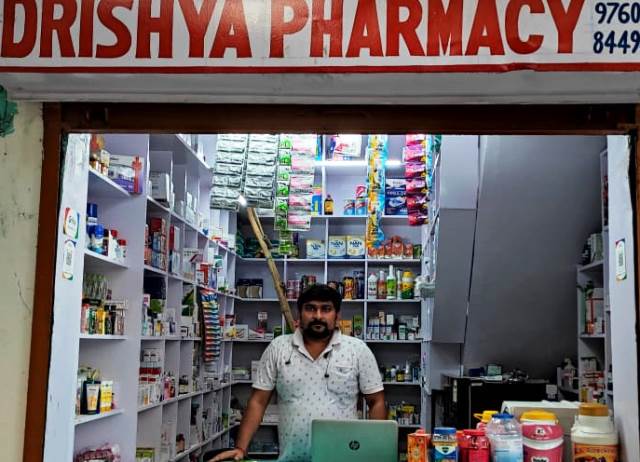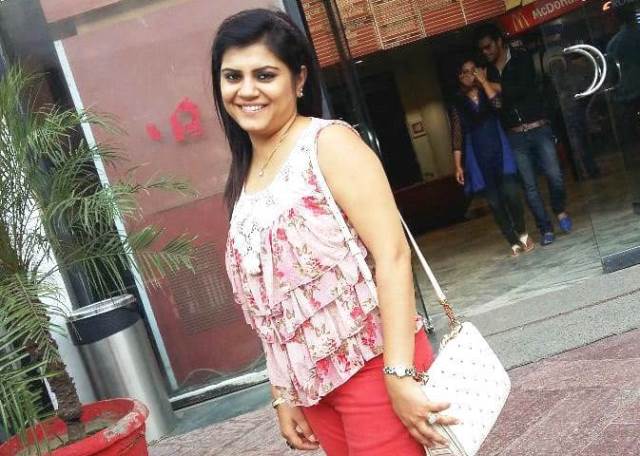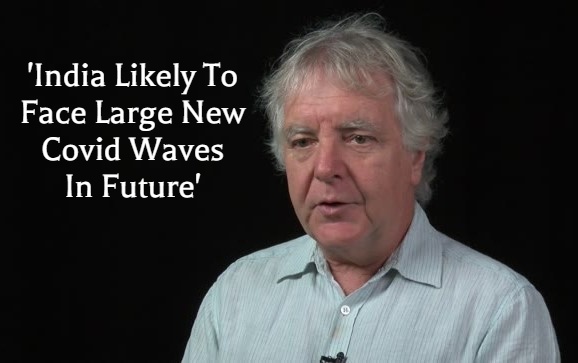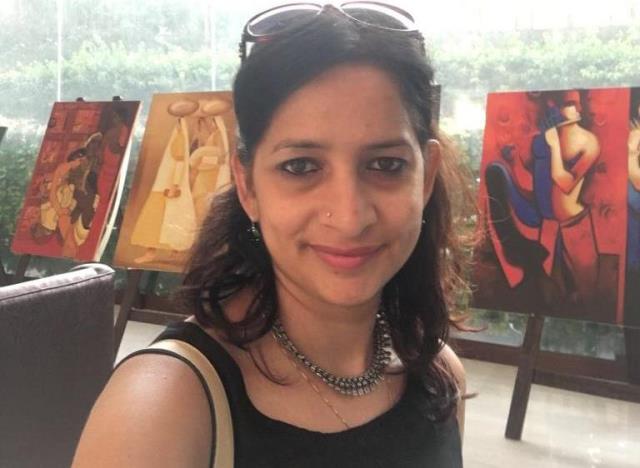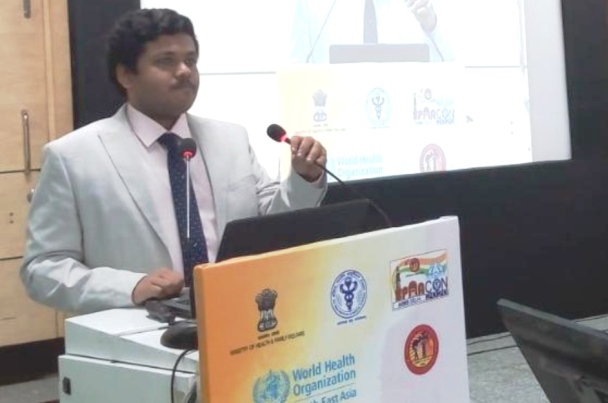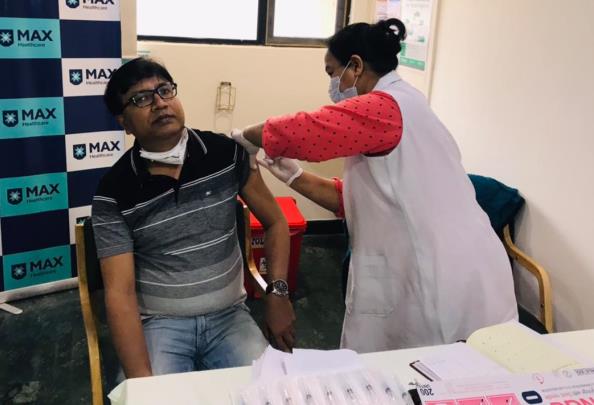Nearly half a year ago, I wrote an article stating that the Covid-19 virus wasn’t going away anytime soon. And here I am again, discussing a different variant of the virus this time: Omicron. Here too, I shall repeat once again: the virus is here to stay. While the Omicron variant is peaking, it does not necessarily imply that the Delta variant is weakening down or is losing its potential to cause serious harm. In fact, we are now having mixed infections at the community level.
The third wave is raging, at least in the state of Maharashtra, Delhi, and to a great extent in Kolkata, though like the past waves there is no synchronised peaking all over the country. Meanwhile, globally, there are different co-infections emerging like the “Delmicron” (co-infection of Delta and Omicron) or the “Flurona” (Flu with COVID-19). But yes, rarity is an issue with these new combinations as of now.
The Delta variant was severe but its ability to spread was comparatively lower than the Omicron variant. There is an important distinction here. The Omicron variant is merely ‘less severe’ than Delta, but that doesn’t mean in itself that it is ‘mild’ as is being reporting in sections of the media. People cannot be slipshod about it. There have also been reports that say that the Omicron variant will act as a natural vaccine since it is less severe, does not require hospitalisation and its higher-spread potential means herd immunity can be achieved.
These are dangerous, sweeping statements to make. No, Omicron variant isn’t a natural vaccine. There is so much that we don’t know about the nature of the virus and its recurring mutations and the strains that develop from those mutations, yet. There are various permutations and combinations by way of which a particular strain may affect a particular person and we should avoid making blanket statements like these. Such assertions merely encourage people to go about with business as usual and deliberately expose themselves to the contagion; this would amount to playing with fire.
As the medical situation stands in India currently, the Delta virus is still the dominant infection even as Omicron cases are on the rise. There is a difference in disease manifestations and severity! For instance, a person who hasn’t been exposed to the virus at all during the previous two waves will show a different set of symptoms and response, when infected with Omicron, than somebody who is fully vaccinated and has already been infected during one the first two waves.
ALSO READ: Omicron, The Crafty Virus
Throw in co-morbidities, age and immunity factors into the mix and the symptoms get even more complex. Some people develop immunity because of their natural body milieu and vaccine while some remain dependent on vaccine-induced immunity alone.
- Omicron is not a natural vaccine
- The virus will continue to mutate
- ‘One Health’ approach best remedy
- Human, animal, climate are linked
- Covid-appropriate behaviour must
A person who has been infected after vaccination is called to have a ‘vaccine breakthrough infection’. The Omicron variant has huge mutations in the spike protein of the virus which often helps it dodge the immunity. It may so happen that the newer variants will slowly drive out the older variants, e.g. the Omicron variant may push out Delta with time. But no one can say for sure whether future variants will be less or more severe, or if at all this will happen.
So, Where Does The Solution Lie?
If we are to beat the virus at all or at least have a semblance of control over it, we need to focus on the concept of ‘One Health’. When we discuss about health putting together people, animals, and environment they make the One Health Triad. One Health is in fact a rational unification of local, national, and global practices for optimal health in the interaction between human, animals, and their environment.
In simple language: One health means the health of humans doesn’t exist in vacuum and is deeply connected to that of animals and our shared environment. Zoonotic diseases (diseases that can easily be passed on from animals to humans) like coronavirus will be on the rise if we do not consider humans, animals and other components of nature as ‘one collective unit’. We need to move in tandem with nature.
As we have seen, the emergence of the newer virus strains is also connected to the socio-economic condition of a country. Both the Delta and Omicron variant have emerged (read detected) from developing nations. Even the original novel coronavirus emerged from Wuhan, whose socio-economic condition is not as good compared to other parts of China. So, it is developing nations that will have to take the lead in working with the concept of ‘One Health’ and implement what is known as ‘Systems Thinking’ in public health.
‘Systems thinking’ approach is a holistic one that analyses the intricacies in complex systems – it can be any system. Through this, in Public Health we can try to understand how different societies or its different strata act to achieve collective health goals, and also how and where the external influencers have an impact.
The ‘third wave’ may become the end of waves in which huge number of people get infected at once and the pressure on healthcare system is staggering, but it is not necessarily the end of the coronavirus. With the passage of time it might turn ‘endemic’, meaning we might learn to live with it. A disease becomes endemic when it stops becoming a major problem, although one cannot say that those infected will have it mild or it will just wash away like the common cold or viral fever. A lot of it then boils down to our individual approach to our health. As of now, the World Health Organisation has warned against declaring the pandemic as an endemic (which Spain already has) because the transmission rates globally are still very high and might spiral anytime, we still need cooperation of global proportions in fighting the virus.
All of us are in this together. The virus still has a vice-like grip on people, especially among the poor, the unprivileged who cannot afford to isolate for long because their livelihood depends on going out. Thus to make everyone’s lives easier, the community as a whole needs to practise Covid-appropriate behaviour: wearing masks, maintaining social distancing, frequent hand-wash, and avoiding public gatherings like political rallies, religious congregations, marriages, social parties etc. as much as we can. Taking our vaccines, taking care of other aspects of our health, especially mental health, and pursuing a holistic approach to our lives is what will usher us into a ‘One Health’ era.
The writer is an Epidemiologist and Health Researcher, posted as Assistant Professor (Community Medicine) in Dr B C Roy Multi-Speciality Medical Research Centre, IIT Kharagpur
